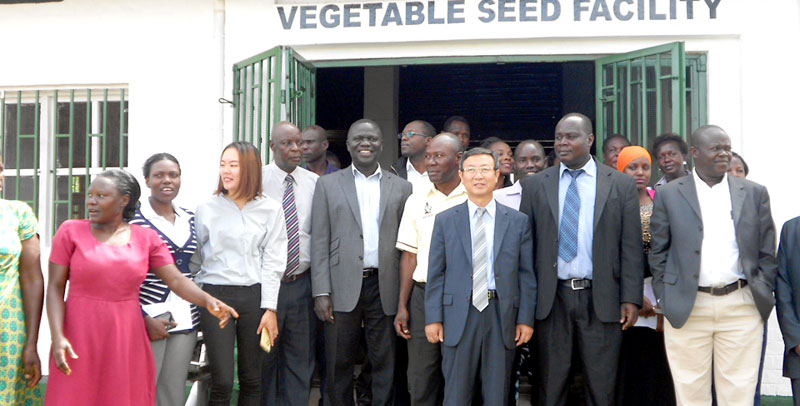News
Vegetable seed production starts at Namulonge
Better nutrition encompasses the consumption of vegetables, proteins and water, so says the World Health Organisation. Vegetables are especially emphasised because of their anti-oxidant properties that suppress cancer and other diseases.
And yet, while many people in Uganda could well realise these benefits given the relatively low cost of putting vegetables on table, compared to other say protein sources like beef and chicken, very few actually bother to consume the leafy stuff and thus do not push farmers to grow them.
Part of the problem often arises from the poor perceptions held among most Ugandans that vegetables are inferior foods compared to proteins. But also, poor access to seeds of the commonly consumed vegetables has proved a major obstacle to most farmers.
Fortunately, efforts are underway to change this trend of events, at least from a logistical point of view. With the help of the Korea Programme on International Agriculture, (KOPIA) researchers at the National Crop Resources Research Institute (NaCRRI) Namulonge have embarked on steps to ease access to seeds of popular vegetables such as Nakati, Jjobyo, Bbugga and Egg Plants.
Last Friday, a vegetable seed processing facility was opened at NaCRRI to signify the dawn of a new era in vegetable production in Uganda. The facility came courtesy of KOPIA, which is supporting a three year programme on promoting the increased production of vegetables and vegetable seed in Uganda using low cost technology, for improved nutrition.
KOPIA’s support appears to be bearing fruit if, testimonies by Ramathan Hiddi, the head of unit for vegetable seed production at Namulonge, are anything to go by.
Besides supporting the refurbishment of the vegetable seed facility, the KOPIA programme is helping to link vegetable seed producers in Nakaseke and Wakiso to the formal seed sector.
As Hiddi pointed out, the programme has educated farmers on how to grow and process vegetable seeds and after which, they have sold it to the existing seed companies.
NaCRRI director Dr. Godfrey Asea also hailed the development as an important step towards formalising indigenous vegetable seed, adding that breeding of vegetable seed had taken the back seat in Uganda.
And the inauguration of the vegetable seed facility at Namulonge will likely make indigenous vegetable seed more accessible due to improved capacity as well as sensitisation of farmers.
Comments



















